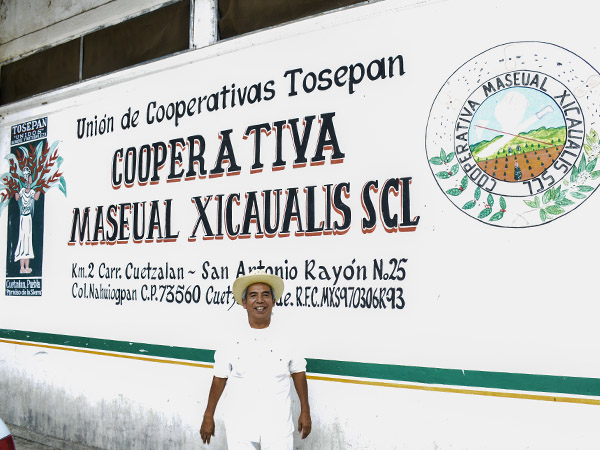Puebla, Mexico
Tosepan represents an exemplary model of self-management and solidarity that integrates economic development, cultural preservation, and environmental sustainability. This organization is based on the unification and collective action of the producers of the Indigenous communities of the Sierra Norte de Puebla, Mexico.
Initially born out of the shared need among the region’s Indigenous communities to eliminate the involvement of exploitative intermediaries in the trade of their products, Tosepan has evolved into a comprehensive cooperative model, encompassing a wide range of activities. These include the production of organic coffee, allspice, cinnamon and melipona honey, as well as the provision of financial services through the Caja de Ahorros Tosepantomin, which offers advice and loans.
In addition, Tosepan manages a community radio station, promotes the advancement of health, tourism, education, and environmental protection, as well as clean energy. The organization is also committed to gender equality and human rights issues.
This case study is part of a special collection developed by Regions4 as part of its work on
Just Resilience. With the support of CONGOPE, its goal is to highlight Indigenous and community- based economic models that integrate sustainable practices, ancestral knowledge and collective organisation, and that actively contribute to environmental conservation and territorial resilience.
These experiences were identified during the Breakthrough Workshop on Indigenous Economy and Just Resilience held in Napo (Ecuador) in January 2025. The case studies include practical recommendations for subnational governments to recognise, strengthen, and collaborate with these models through their public policies, fostering a fairer, more inclusive transition in harmony with nature.
The full case study in Spanish, English and French is available below:
-
Tosepan Titataniske (Español)
Descargar -
Tosepan Titataniske (English)
Download -
Tosepan Titataniske (Français)
Télécharger
